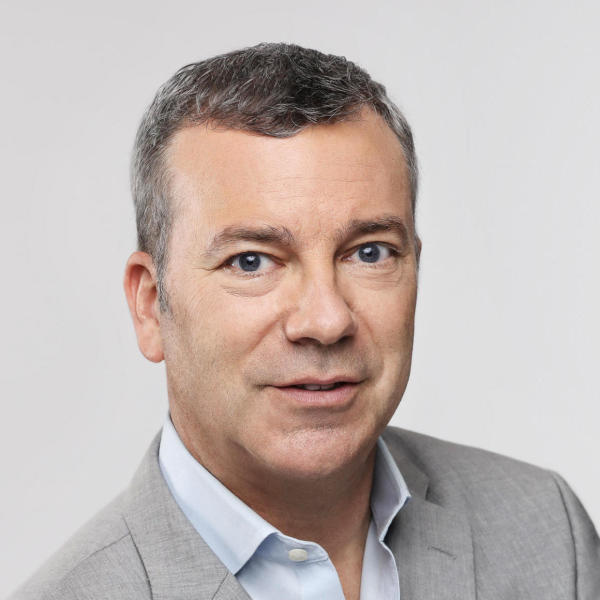Cape Town's College of Magic: A one-of-a-kind magic school
This is an updated version of a story first published on Dec. 11, 2022. The original video can be viewed here.
You can't wave a wand and make intolerance, hardship and violence disappear. But you can use magic to try. We learned that after visiting a remarkable school in Cape Town, South Africa. It's called the College of Magic. While it's not an accredited institution, it is a real-life Hogwarts, a school filled with students ranging in age from 10 to 18, and more importantly, reflecting South Africa, they come from privilege and poverty. Pick a canard, any canard - sleight of hand; juggling; ventriloquism; card tricks- you can learn it all at the College of Magic. But as we first reported two years ago, what the school really teaches is also the great superpower of magic itself: rethinking the limits of possibility.
It looks like any other campus. Gothic architecture, a diverse student body, a core curriculum, all balanced with electives.
To become masters of magic, these kids must be both tacticians and technicians. Like any art form, this one requires practice, application, discipline.
There is no magic bullet. While students attend academic school during the week, they come here after school, on weekends and on holidays. It takes six years to earn a diploma.
Sinathemba Bawuti is a teacher, a graduate, and himself now a practicing magician. He shows students the tricks of the trade.
Jon Wertheim: What is it about magic? What appeals to you so much about this?
Sinathemba Bawuti: I didn't think that I would be doing this as a career or performing it like doing it like— to support myself. I wanted to put a smile on people's faces, make them happy, entertain them, break ice. That's what I wanted to do. But then it became my thing, like, that I'm using to feed my family and myself.
And he says he — and the school — aim to teach the kids honesty, humility and respect.
Jon Wertheim: It sounds like the tricks and the juggling is only a small part of it.
Sinathemba Bawuti: Yeah. It's not a College of Magic, it's a College of Life. (LAUGH)
David Gore: Let's go and have a look upstairs.
For the revered dean and founder David Gore, it's been 40 years since he stopped practicing law and pulled the ultimate bit of misdirection. In his hometown of Cape Town, he opened a college — the only school of its kind — devoted to wonder.
Jon Wertheim: I'm surely not the first person to make the joke. You— you gave up law to pursue a career of-- of deception.
David Gore: I don't-- like to think of it as deception. We like to think of it as— of illusion and wonderment.
Gore's encyclopedic knowledge and love of magic fills the halls, quite literally. Contraptions and memorabilia trace the history of illusion.
David Gore: Even with all the sophistication around us. There's nothing more exciting than seeing a magician live and seeing something appear or disappear right under your nose.
Jon Wertheim: Well, what do you attribute that to?
David Gore: I think people genuinely are very interested in and curious about how the laws of nature can be suspended. And I think the magician offers that opportunity, that gateway to our— to a world which we all would love to be part of. where gravity is always pulling us to Planet Earth where we can float upwards. It's a beautiful feeling.
Nothing here is quite as it seems. On our visit here in July 2022 students were preparing for the annual Children's Magic Festival.
Jon Wertheim: We have a dress rehearsal—
David Gore: Come into our close-up theater, come inside.
Michael Barta has been teaching here for decades.
Michael Barta: I teach children how to use their hands. And this— OK. I was juggling three balls. Somebody's taken my ball. (LAUGH)
The school was always conceived to go beyond hocus-pocus. Is magic about what you see or what you miss? Barta thinks it's both.
Michael Barta: Magic develops skepticism. And curiosity. Those two things are needed in education.
Jon Wertheim: But that's great. you come here and there's a healthy skepticism. How did he do that? (Yeah) And it's mixed with this curiosity and this wonder. (Exactly) "How did he do that?"
Michael Barta: I know. How did he do that? Wow.
From the school's beginning it reflected a cross-section of South Africa. Now, as then, students come from the most wealthy suburbs and from Cape Town's most impoverished townships. Duma Mgqoki's day starts at dawn in the tin shack he shares with his grandmother and aunt. Duma's mother was murdered four years ago. The sprawling shantytown, like so many others in the country, is pocked by violence and drugs.
Duma Mgqoki: Some of them are carrying guns. And some of them are carrying knives. Like, busy robbing old people, like being on drugs and stuff. So, like, I have to be indoors because hear gunshots. (MAKES NOISE)
Jon Wertheim: You're describing gunshots, and knives, and drugs, and gangs. And you come here. It must-- must be a bit of a relief?
Duma Mgqoki: It helped me a lot. Like, it saved me from doing those stuff because I became an artist and, like, I began to take care of myself.
Jon Wertheim: You say artist?
Duma Mgqoki: Yeah. you're a magician. We're are artists 'cause it's art. Yeah.
In the townships, you don't come across many bowties, so when Duma passes by, he draws attention. A quick bit of whiz—and gee whiz—and he's off.
The school arranges transportation when needed, shuttling the kids on the long journey into the city. There is no uniform as such, but students are encouraged to dress as smartly as they can.
For many, going to the school marks a rare opportunity to get out of the township. Tuition is $350 a year, unaffordable for most of the 130 students. The college, a nonprofit, raises funds for scholarships, breakfast and lunch included.
Jon Wertheim: You have some kids coming here who are malnourished, you have to feed. You have other kids getting picked up by parents in-- in fancy sports cars. is that hard for you to watch?
David Gore: Yes I think it's an important part of our— nation-building, and for understanding that young people get to understand how each other is living and how we think and-- and how we approach life because these are going to be the young people who are going to drive this nation forward.
Jon Wertheim: I could see some people watching this saying, "This College of Magic is all well and good, and you're teaching kids to make coins disappear, but why aren't you teaching 'em coding or something more practical?"
David Gore: I think the most important skill in the 21st century is going to be imaginative thinking. Because no matter which career you select to go into— it's going to no longer be your knowledge around that, because that knowledge is so freely available now on the internet. It's going to be how you use that knowledge and there is no better topic or subject than magic to explode the whole idea of imagination.
Jon Wertheim: If they trade their cape for three-piece suit or for a sports jersey or for a nurse's attire, you're okay with that.
David Gore: Absolutely.
Fifteen-year-old Nakhane Ntame is a rising star at the college, but four years ago she had to beg her mother to allow her to enroll.
Nakhane Ntame: And then I was like, "Mom, I would like to join this." "What are you talking about?" "I want to become a magician." And she thought I was crazy, but here I am today.
Jon Wertheim: Here you are. Your mom said you were crazy for wanting to be a magician.
Nakhane Ntame: 'Cause they do not believe in magic.
Not only that, for many in the townships magic is associated with the occult or witchcraft.
Nakhane Ntame: the first time I performed, I performed for my grandmother. Right? So she does not understand magic at all. And every time she would see magic, like (FOREIGN LANGUAGE), which means darkness. You know, evil powers and stuff like that.
Jon Wertheim: If people are saying, "I— I don't understand. Explain it to me," what do you tell them?
Nakhane Ntame: Oh, that magic is not black magic. We do not practice any kinds of spells. Dark spells. There are actually secrets behind the magic and it takes time to practice and master it.
Mylo Dreyersmith says his mom had to convince him to enroll.
Mylo Dreyersmith: before I came to the College of Magic, I was very shy. So I couldn't dance, even in front of my brother and sister. I would just kind of go hide behind my mom and my mom said I need to learn SI skills.
Jon Wertheim: SI is social intelligence?
Mylo Dreyersmith: Yes And then when we learned about the College of Magic, she was like, "That is the perfect spot. Firstly, you'll get into a good high school because you have lots of different talents. And secondly, it's SI skills.
Jon Wertheim: I'm gonna go out on a limb here. I'm gonna take a risk. You came here for more social intelligence, to come out of your shell a little bit. It seems like it's working.
Mylo Dreyersmith: Yeah. It is working.
Jon Wertheim: Being a magician, do you feel like you're part of a secret society, a secret club?
Mylo Dreyersmith: Yes. Like a secret agent of a big force.
Jon Wertheim: Let's do a role play. "Mylo, Mylo, tell me how you do that trick!"
Mylo Dreyersmith: No. (LAUGHTER)
Jon Wertheim: "Why not?"
Mylo Dreyersmith: Because you're a dunderhead and you wouldn't be able to understand.
Jon Wertheim: I'm a dunderhead?
Mylo Dreyersmith: Yes, you are. (LAUGH)
Jon Wertheim: Never give up your secrets though, right?
Mylo Dreyersmith: Actually, all my— all my family has learned all of it by now. Because when I practice for a performance, they pick up my mistakes.
Jon Wertheim: Your family can keep a secret?
Mylo Dreyersmith: I'm not sure about my sister. (LAUGH)
Ten miles—and an incalculable distance from where Mylo lives—meet Lulo Stofile. Lulo the Great as he calls himself. He lives in a 1-bedroom home with his father, Shawn, mother, Belinda, and little sister Lolu. He too transformed after joining the college of magic.
Belinda: He's, like, hyperactive.
Jon Wertheim: Was he always that way?
Belinda: No, he was too shy like his sister.
Jon Wertheim: This guy was shy?
Belinda: Very, very shy—
Shawn: Very, very shy—
Jon Wertheim: I don't believe it.
Belinda: Very, very shy.
But for Belinda and Shawn, magic is more than a tool to get Lulo out of his shell, it might also be his path out of poverty.
Belinda: I said to Lulo each and every day, "Continue with your magic."
Jon Wertheim: Continue with your magic--
Belinda: Yes. "Fly, wherever you want to go to. it's your life. It's not my life. But the only thing that I want from you
Shawn: Is to succeed—
Belinda: —is to succeed in life.
Shawn: Succeed in life, you—
Belinda: That's it.
Lulo Stofile: One day I'm gonna be a famous magician.
Jon Wertheim: One day you're gonna be a famous magician. Is that what you want?
Lulo Stofile: Yes. And it will happen.
But first things first: tomorrow is the Children's magic festival, and Lulo can barely contain himself.
Jon Wertheim: What's the goal tomorrow?
Lulo Stofile: The goal tomorrow is to show people who I am. I'm Lulo the Great, the juggler, spinning rings, all that stuff.
Jon Wertheim: Cards. Juggle. Dancing. What doesn't Lulo the Great do?
Lulo Stofile: Lulo The Great doesn't do only one thing.
Jon Wertheim: Man of many talents.
Lulo Stofile: Many talents.
There was an abundance of talent on display, and there was an abundance of wide-eyed wonder. Kids and parents and this correspondent converged on the college. Duma Mgqoki was among the showstoppers.
Duma Mgqoki: some of them is— for the first time to see this. I bring happiness to the kids. That's why I feel happy because I'm making them happy.
Jon Wertheim: You're not just making them happy; you're making them wonder. you're expanding their idea of possibility and imagination?
Duma Mgqoki: Yeah. It's a great feeling. It's a great feeling.
Jon Wertheim: But you don't give it up when they say, "How'd you do it?"
Duma Mgqoki: "It's magic." (LAUGH) "It's magic."
Produced by Michael H. Gavshon and Nadim Roberts. Broadcast associate, Elizabeth Germino. Edited by Daniel J. Glucksman.











